Scientific Staff
-
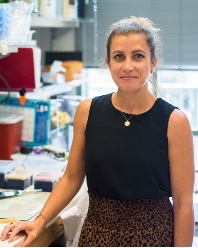
Vanessa Taupin, PhD
Assistant Project Scientist Email: vtaupin@used.edu
During my career I have worked in various fields of research: virology, microbiology, gene therapy, molecular and cell biology. And while conducting my own research I became aware of my passion for all imaging technics (light and electron microscopy). That led me to be part of the Electron Microscopy Core (UCSD) where I oversaw all Immuno-EM projects for many years.
I have extensive experience in electron microscopy: resin and cryo samples, ultra-(cryo) microtomy, immuno-EM (tissue or cells, single, double, triple gold labeling), routine TEM for morphology, negative staining (small biological specimens or nanoparticles)…
And I am now excited to provide my EM expertise to both groups in the lab: the Mitosis group (genome rearrangement in cancer) and the Neuro group (mechanism and therapy for human neurodegenerative disease).Education:
Ph.D., Microbiology, University of Clermont-Fd, France, 2006
M.S. Molecular Physiology and Genetics, University of Clermont-Fd, France, 2002
Fellowship:
Saban Research Career Development Fellowship, Los Angeles, 2007-2009 -
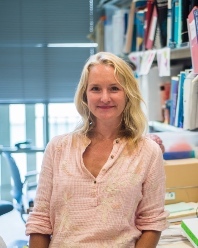
Melissa McAlonis-Downes, MS
Academic Program Research Management Officer Email: mmcalonis@ucsd.edu
In the Cleveland Lab, Melissa oversees & manages research projects within both the Neuro & Mitosis groups in the Department of Cellular & Molecular Medicine. She has a major supporting role to team members, working with new and current post-docs, research staff & students, implementing new methodologies, experimental planning, monitoring project progress, and writing reports. Her expertise with in-vivo experimentation aids in our primary focus of studying the mechanisms and therapy for human neurodegenerative disease and provides consultation, training & surgical knowledge for those who have transgenic experiments; as well as manages & coordinates all animal studies on-going in the lab. Her primary research focus is Antisense Oligonucleotide Therapy for Familial ALS and Huntington's Disease Models. She also serves as part of a collaborative disease research team funded by CIRM focused on the therapeutic potential of spinal grafting of neuronal precursors (NPSC’s) and stem cell-derived astrocyte precursor transplants in ALS.
Education:
B.S., Pennsylvania State University, University Park, 1999
M.S., Johns Hopkins University, 2002
Surgical Research Specialist (certified), Academy of Surgical Research, 2005
Mitosis Group
-
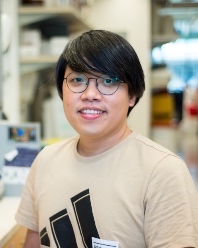
Franco Au, PhD
Postdoctoral Fellow Email: k1au@health.ucsd.edu
Extrachromosomal DNA (ecDNA) drives oncogene amplification and rapid tumor evolution in aggressive cancers. My research interests focus on unravelling the inheritance mechanism of ecDNA in cancer cells. I am also very excited to examine the potential on targeting ecDNA in different cancers as a therapeutic approach.
Education:
Ph.D., The Hong Kong University of Science and Technology, 2019
M.Phil., The Hong Kong University of Science and Technology, 2015
B.S., The Hong Kong University of Science and Technology, 2013 -
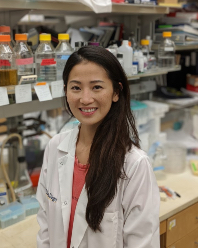
Julia Li, PhD
Postdoctoral Fellow juliali@health.ucsd.edu
Approximately half of the human genome consists of DNA repeats that are particularly prone to instability and damage. Breakage of DNA repeats can give rise to repeat expansion diseases and cancer. I am interested in defining the molecular basis of the breakage of repetitive DNA as a source of genetic plasticity and genomic instability.
Education:
Ph.D., Scripps Research, La Jolla, CA, USA
M.Sc., University of Edinburgh, Scotland, UK
B.Sc., University of Toronto, Toronto, Canada -
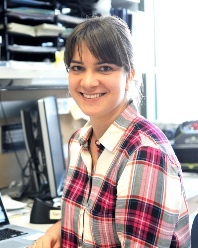
Ksenia Krupina, PhD
Postdoctoral Fellow Email: kkrupina@ucsd.edu
Nuclear integrity is crucial for proper cell function. I am interested in understanding the mechanisms underlying genome rearrangements observed upon nuclear envelope rupture. I am also focused on identifying the role of factors controlling mitotic progression in chromosome instability and cancer, using a combination of cellular and animal models.
Education:
Ph.D., University of Strasbourg (France), 2014
M.S., Lomonosov Moscow State University (Russia), 2008 -
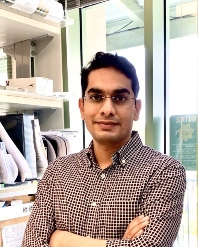
Prasad Trivedi, PhD
Postdoctoral Fellow Email: prtrivedi@health.ucsd.edu
Errors in mitosis can cause localized complex chromosomal rearrangements. Such rearrangements are ubiquitous in cancers and are crucial drivers of genome evolution. I am interested in identifying molecular mechanisms that enable the formation of such complex chromosomal rearrangements.
Education:
Ph.D., University of Virginia, Charlottesville, USA, 2019
M.Sc., University of Pune, India, 2011
Awards:
Hope Funds for Cancer Research, Postdoctoral fellowship, 2021
Neuro Group
-
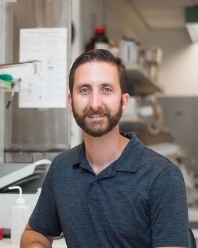
Michael W. Baughn, PhD
Postdoctoral Fellow Email: mbaughn@health.ucsd.edu
I am focused on the mechanistic underpinnings of RNA processing defects in the neurodegenerative diseases ALS and FTD, leveraging these findings to accelerate therapy development using a combination of techniques that include: CRISPR genome editing, transgenic and AAV-mediated disease modeling, corrective antisense oligonucleotides, and gene therapy.
Education:
Ph.D., Biomedical Sciences, University of California, San Diego, 2021
B.S. Cellular, Molecular, and Developmental Biology, University of Washington, Seattle, 2010 -
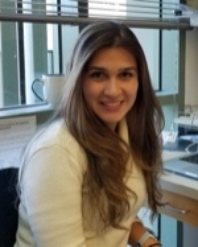
Melinda Beccari, MS
Ph.D Candidate Email: mbeccari@ucsd.edu
Stathmin-2 is a protein shown to be crucial for motor neuron regeneration, and is depleted in ALS patients who present a TDP-43 pathology (which represents ~95% of cases). For my thesis work, I am interested in understanding the biology of this protein. I am investigating what roles this protein plays in neuronal axons, how it is regulated, and how it is involved in tubulin biology using iPS-derived motor neurons as a cellular model.
Education:
M.S., Biology/Genetics, Biosciences Institute, University of São Paulo, Brazil, 2015
B.S., Biology, Biosciences Institute, University of São Paulo, Brazil, 2012 -
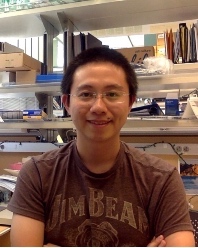
Cong Chen, PhD
Postdoctoral Fellow Email: mac112@ucsd.edu
Abnormal protein aggregation and trans-cellular transmission of pathogenic protein are hallmarks of neurodegenerative diseases. However, whether TDP43, the main component of ubiquitinated protein aggregates found in most ALS patients, can spread cell-to-cell and further cause degeneration in motor system is unknown. My research focuses on understanding the mechanism underlying spreading of TDP43 pathology, and its causal function in ALS. I am also interested in mechanism of the liquid-liquid phase separation of RNA-binding proteins, like TDP-43, and the physiological function and/or the pathological roles of the TDP-43-riched membrane-less organelles in mammalian cells.
Education:
Ph.D., Zhejiang University, 2015
M.S., Zhejiang University, 2010
B.S., Zhejiang University, 2007 -
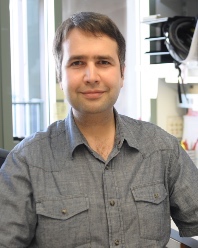
Alexander Goginashvili, PhD
Postdoctoral Fellow Email: agoginashvili@ucsd.edu
My research focuses on unraveling the pathways of cellular uptake of Antisense Oligonucleotides (ASOs), a promising therapy for several neurodegenerative diseases including Huntington’s Disease, Amyotrophic Lateral Sclerosis and Frontotemporal Dementia. I am further interested in understanding mechanisms underlying defective nucleocytoplasmic compartmentalization and genome instability in aging and disease.
Education:
Ph.D., (Dr. Sc.), ETH Zurich (Switzerland), 2014
M.S., St. Petersburg State University (Russia), 2008
B.S., St. Petersburg State University (Russia), 2006 -
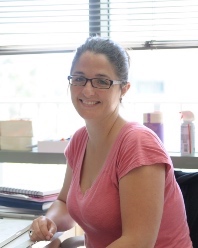
Jone López-Erauskin, PhD
Postdoctoral Fellow Email: jlopez-erauskin@ucsd.edu
My research is centered on the study of neuromuscular junctions and the pathological mechanisms that drive muscle denervation in ALS. My efforts are principally focused on the discovery of molecules that have the potential to induce muscle reinnervation.
Education:
Ph.D., University of Barcelona, Spain, 2013
M.S., University of Barcelona, Spain, 2009
B.S., Autonomous University of Barcelona, Spain, 2006
Awards:
2019 Muscular Dystrophy Association (MDA) Development Grant
2016 The Milton Safenowitz Post Doctoral Fellowship for ALS Research -
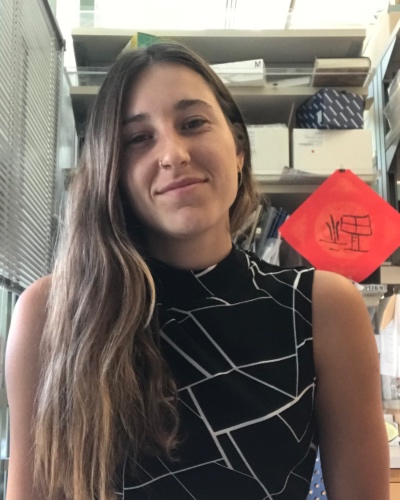
Olatz Arnold-Garcia, MS
Visiting Predoctoral Fellow Email: oarnoldgarcia@health.ucsd.edu
I am a visiting graduate student coming from Dr. Lorea Blazquez’s Lab at the Biodonostia Health Research Institute in Donostia, Spain. My research interests lie in investigating RNA splicing alterations in TDP-43 proteinopathies to identify novel diagnostic and therapeutic targets. Currently, I am being co-supervised by Professor Don W. Cleveland and Dr. Jone Lopez-Erauskin. Our research focuses on the characterization of stathmin-2 misprocessing in mice and humans. I am actively involved in both computational analysis and biochemical research in the lab.
Education:
M.S., University of Applied Sciences and Arts Northwestern Switzerland, 2021
B.S., Autonomous University of Barcelona, 2019 -
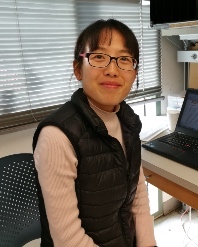
Shan Lu, PhD
Postdoctoral Fellow Email: shl563@ucsd.edu
I am interested in studying the mechanism of muscle denervation in ALS using Mass Spectrometry. My research interest mainly focused on characterizing the disease-specific changes of whole proteome and local translated proteins at the axons of motor neurons.
Education:
Ph.D., National Institute of Biological Sciences, Beijing, 2015
B.S., Nankai University, 2009 -
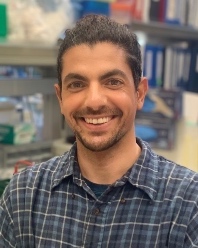
Roy Maimon, PhD
Postdoctoral Fellow Email: rmaimon@ucsd.edu
During my PhD I have demonstrated that ALS-diseased muscles secrete toxic factors which facilitate motor neuron degeneration in early stages of ALS disease. Currently, as postdoc fellow, I test a new concept for treating neurodegeneration: ASO-dependent generation of new neurons by direct conversion from astrocytes in the adult nervous system. Ultimately this approach may open new era for treating neurodegenerative diseases.
Education:
Ph.D., Tel Aviv University
M.S., Tel Aviv University
B.S., Bar Ilan University -
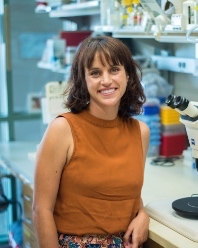
Sonia Vazquez-Sanchez, PhD
Postdoctoral Fellow Email: soniavazquez-sanchez@ucsd.edu
TDP-43 is an RNA-binding protein that undergo liquid-liquid phase separation, resembling oil droplets in vinegar. In many neurodegenerative diseases such as ALS, TDP-43 forms solid aggregates, which are the major hallmark of the disease. A potential pathway to TDP-43 aggregation might be driven by an initial event of phase separation followed by transition to solid state. My postdoctoral efforts are designed to identify basic mechanisms underlining TDP-43 phase separation and its contribution to aberrant TDP-43 aggregation.
Education:
Ph.D., Neuroscience at Vrije Universiteit Amsterdam (VU), Marie Curie ITN-Cognitionnet fellow, The Netherlands, 2019
M.S., Biochemistry and Molecular Biology at Universidad Complutense de Madrid (UCM), Spain, 2014 -
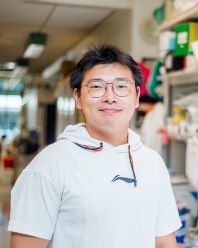
Sitao Zhang, PhD
Postdoctoral Fellow Email: siz017@ucsd.edu
My proposed work will develop inducible phase separation of TDP-43 in the mouse nervous system, with which I will pose mechanistic questions about TDP-43 de-mixing, aggregation, and cell-to-cell spread. Optogenetically-induced dimerization (mediated by cryptochrome 2 [Cry2] for which blue light induces reversible dimerization) are candidates to mediate oligomerization of the initial TDP-43 dimers. After AAV mediated, focal, and inducible motor neuron-specific expression in the murine central nervous system (CNS), I will use live, 2-photon imaging of fluorescently tagged TDP-43 (for >1 month through a permanently mounted window) to visualize TDP-43 behavior, an approach I have already established. With this, I will determine i) whether inducible phase separation can be achieved, ii) whether this triggers endogenous TDP-43 mislocation and/or aggregation immediately or during aging, and iii) whether this facilitates age-dependent cell-to-cell, prion-like spread.
Education:
Ph.D., Biochemistry and Molecular Biology. Peking University, National Institute of Biological Sciences(Xiaodong Wang Lab), 2021
B.S., Natural Science Biotechnology, University of Science and Technology of China, 2015
Research Staff
-
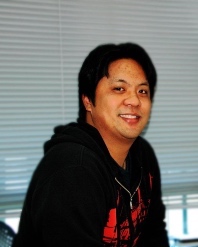
Jon Artates
Research Staff Email: jartates@ucsd.edu
I am part of the Huntington's disease effort. We are currently working to characterize a gene silencing therapy for the treatment of HD.
Education:
B.S., UC San Diego, 2006 -
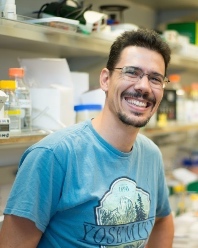
Carlos Chillon Marinas
Research Staff Email: ccmarinas@ucsd.edu
I am lab technician in Don’s lab since 2014, working primarily with the Neuro Group. I am a passionate experimentalist and microscopist. During the past years, I have been involved extensively with ALS research in collaboration with multiple members of the lab. Currently my main shared project is with Roy Maimon where we focus on generating new neurons in the mammalian adult brain. I am also interest and involved in Huntington’s Disease research in the lab. We are actively characterizing several novel aspects of the disease, with the hope of accelerating treatment(s).
Education:
B.S. in Research's Laboratory, Universidad Auntónoma de Madrid, 2005 -
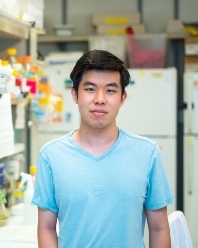
Jaisen Lim
Research Staff Email: jal376@ucsd.edu
I am part of the Neuro group, and I work on elucidating mechanisms of C9orf72 ALS, the most common form of inherited ALS. My work focuses on using transgenic animal models to better characterize how “gain of toxicity” from aberrant repeat-containing RNA and polydipeptide translation products from the GGGGCC hexanucleotide repeat expansion in theC9orf72 gene synergizes with C9ORF72 loss of function. I hope that my work furthers ALS understanding in both the scientific and medical communities so that therapeutics may be developed for patients with C9orf72 ALS.
Education:
B.S., UC San Diego 2021 -
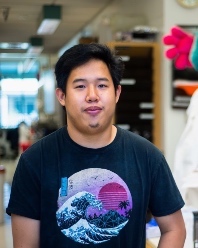
Spencer Oung
Research Staff Email: spoung@ucsd.health.edu
I work with Shan Lu on studying cytoplasmic TDP-43. Our goal is to identify the basic mechanism of TDP-43 phase separation and the mechanism of TDP-43 aggregation found in ALS patients.
Education:
B.S. Neuroscience and Physiology, UC San Diego, 2020
